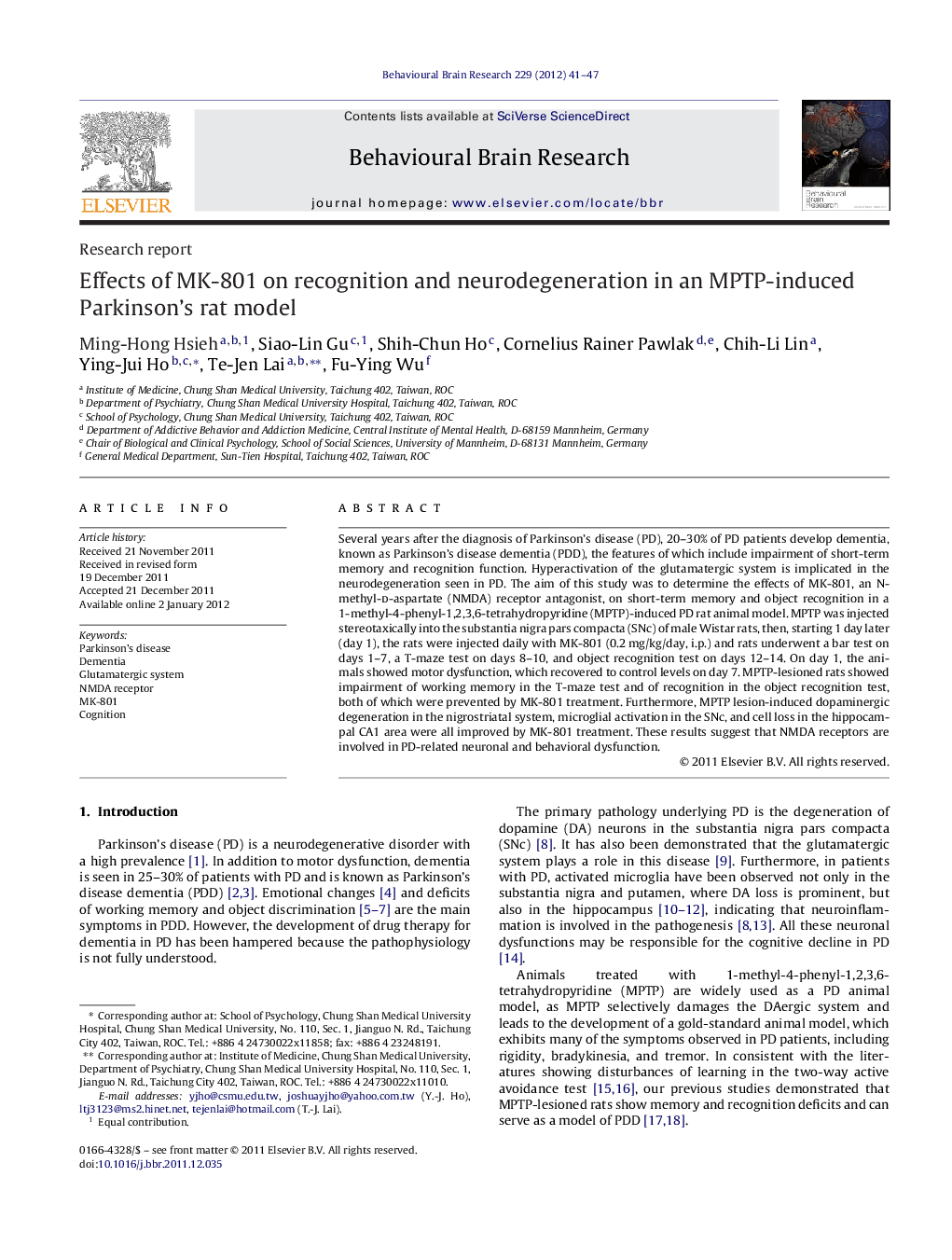| Article ID | Journal | Published Year | Pages | File Type |
|---|---|---|---|---|
| 4313342 | Behavioural Brain Research | 2012 | 7 Pages |
Several years after the diagnosis of Parkinson's disease (PD), 20–30% of PD patients develop dementia, known as Parkinson's disease dementia (PDD), the features of which include impairment of short-term memory and recognition function. Hyperactivation of the glutamatergic system is implicated in the neurodegeneration seen in PD. The aim of this study was to determine the effects of MK-801, an N-methyl-d-aspartate (NMDA) receptor antagonist, on short-term memory and object recognition in a 1-methyl-4-phenyl-1,2,3,6-tetrahydropyridine (MPTP)-induced PD rat animal model. MPTP was injected stereotaxically into the substantia nigra pars compacta (SNc) of male Wistar rats, then, starting 1 day later (day 1), the rats were injected daily with MK-801 (0.2 mg/kg/day, i.p.) and rats underwent a bar test on days 1–7, a T-maze test on days 8–10, and object recognition test on days 12–14. On day 1, the animals showed motor dysfunction, which recovered to control levels on day 7. MPTP-lesioned rats showed impairment of working memory in the T-maze test and of recognition in the object recognition test, both of which were prevented by MK-801 treatment. Furthermore, MPTP lesion-induced dopaminergic degeneration in the nigrostriatal system, microglial activation in the SNc, and cell loss in the hippocampal CA1 area were all improved by MK-801 treatment. These results suggest that NMDA receptors are involved in PD-related neuronal and behavioral dysfunction.
► MPTP caused impairments in working memory and recognition as well as neurodegeneration. ► Chronic MK-801 treatment prevents the above MPTP-induced deficits. ► Hyper-glutamatergic activity is involved in pathophysiology of Parkinson's disease dementia.
